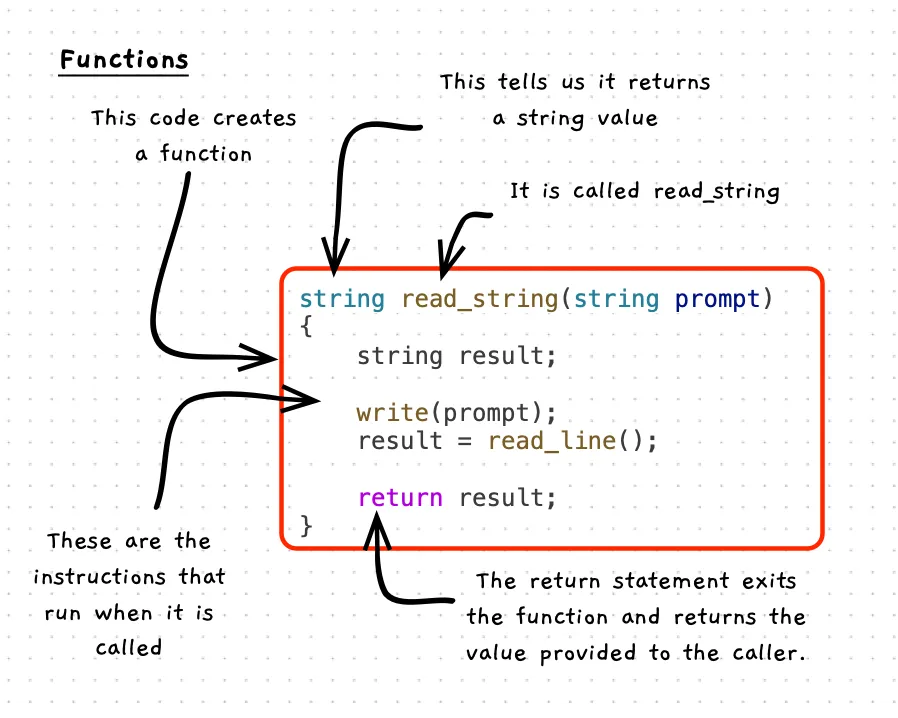Functions
Functions are used to calculate values. They are almost identical to procedures — they have a name, contain instructions, and can be called to perform their actions. The only difference is what happens at the end. When a function ends, it returns a value to the caller, meaning you should call it within an expression where you want the result to be used.

Examples
The code below shows an example of a function called read_string. It is passed a prompt parameter, and returns the details that the user enters at the terminal in a string. We call the function in main as part of the expression within an assignment statement.
#include "splashkit.h"
/*** Prompt the user to enter a string, and return the value to the caller.** @param prompt The message to show the user* @returns The data entered by the user*/string read_string(string prompt){ string result;
write(prompt); result = read_line();
return result;}
int main(){ string name; name = read_string("Enter your name: ");
write_line("Hello " + name);
return 0;}